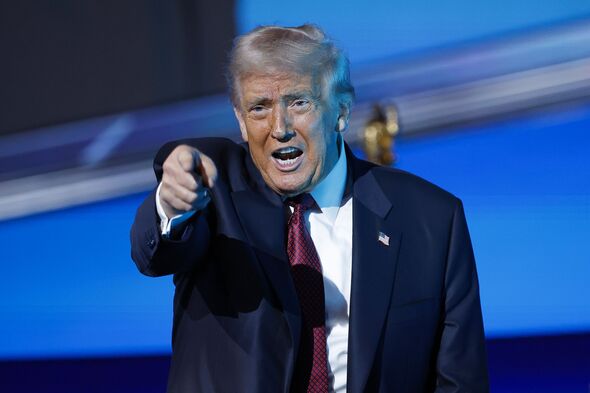The White House is reportedly preparing a secret plan to assassinate Venezuelan President Nicolás Maduro, drawing comparisons to the operation that killed Osama bin Laden. This information comes from sources cited by The Daily Mail, which describe the plot as being “teed up.” The U.S. Justice Department has accused Maduro of transforming Venezuela into a criminal enterprise that collaborates with drug traffickers and terrorist organizations, allegedly stealing billions from the country.
In 2020, New York prosecutors indicted Maduro and several associates for conspiring with Colombian rebels and military personnel to flood the United States with cocaine, using the drug trade as a “weapon against America,” according to The Associated Press. Despite claims from the U.S. intelligence community that allegations regarding Maduro’s connections to the Tren de Aragua group are unfounded, the military has amassed an unusual number of Navy vessels near South America, raising concerns about a potential invasion and direct action against Maduro.
Reports indicate that a Special Forces operation to eliminate Maduro is awaiting approval from President Donald Trump. This operation is reminiscent of the 2011 SEAL Team Six raid that resulted in bin Laden’s death. A source familiar with Trump’s strategy in South America indicated that the assassination plan exists, and White House officials did not deny its possibility. “It’s going to get spicy,” the source reportedly stated.
Senate Republicans recently rejected legislation intended to limit Trump’s ability to launch military strikes against Venezuela. This decision comes as Democrats urge Congress to take a more active role in addressing Trump’s aggressive approach toward Maduro. Lawmakers, including prominent Republicans, have demanded greater transparency regarding military strikes targeting alleged drug-smuggling vessels operating in the Caribbean and eastern Pacific oceans.
During discussions in Congress, some members expressed concern about the administration’s lack of evidence linking targeted boats to drug trafficking. Senator Jim Risch, the Republican chair of the Senate Foreign Relations Committee, has supported Trump’s actions, stating, “President Trump has taken decisive action to protect thousands of Americans from lethal narcotics.” Risch and Defense Secretary Pete Hegseth have claimed that narco-terrorists are attempting to enter the U.S. with enough drugs to potentially kill between 25,000 to 50,000 people, likening these threats to the September 11 attacks.
The military has conducted multiple strikes, reportedly resulting in the deaths of at least 69 individuals in 17 operations off South America, a toll that continues to rise. Yet, officials involved in these actions have not provided Congress with the necessary evidence to substantiate claims of drug trafficking or to identify the cartels implicated.
Trump has framed these military strikes as an escalation necessary to combat drug trafficking, asserting that the U.S. is engaged in an “armed conflict” against these cartels. This approach relies on legal justifications similar to those invoked by the Bush administration during the war on terror. As military actions increase, a debate in Congress grows regarding the limits of presidential power, especially since these strikes have occurred without formal declarations of war or thorough investigations.
Representative Adam Smith criticized the administration’s lack of transparency, stating he had “never seen such a staggering lack of transparency” regarding military operations. When a reporter challenged Trump about the need for a declaration of war against drug cartels, Trump dismissed the idea, saying, “I think we’re just gonna kill people. Okay? We’re gonna kill them. They’re gonna be, like, dead.”
Trump has maintained that the strikes are justified under existing legal authority, asserting that they are necessary to protect American lives. He indicated that similar operations could extend to land targets, stating, “We’re totally prepared to do that.” This aggressive military posture reflects a significant shift in U.S. foreign policy towards Venezuela, with implications that could resonate throughout the region and beyond.





































































